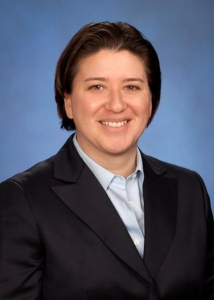 By Melissa J. Anderson (New York City)
By Melissa J. Anderson (New York City)
According to Claire Warnes, Partner in KPMG’s Risk Consulting practice, one of the best parts of working in consultancy is that there are lots of moments which make you feel proud. “There’s not one occasion, but many. That’s why I like working for a consultancy with so many clients. My proudest moments are when we work as a team with a client, bringing diversity of thought to bear and really making a difference in how our clients implement change,” she explained.
Warnes spent nine years in three roles in the UK public sector before being headhunted into KPMG’s Public Sector practice. “At KPMG, I’ve done eight years work as a management consultant, implementing and designing change in the public sector, for universities, defense, and increasingly in healthcare,” she said.
In addition to those eight years, Warnes cited a valuable assignment in Frankfurt that propelled her career forward. “In 2009, I was asked to take on a strategic secondment to be the Executive Assistant to the Joint Chairman of KPMG Europe. It was a fantastic experience and one of the highlights of my career.”
Then, last year, after ten years with the firm, she was promoted to partner. “Now I’m back to consulting, working with lots of clients and helping them think about the future and plan for the significant changes they are facing, and what that could mean for their business.”
Currently Warnes’ work is mainly around the regulation of healthcare. “I’m passionate about that, and the role of regulation in enhancing the quality, efficiency, and patient safety of healthcare. I think it makes a difference.”
She added that she is also interested in how the economy will impact consultancies moving forward. “In austere times which many mature economies are facing now, the role of consultancy is extremely important. Even when money is tight there is an important role for consultants to play and add value to organizations.”
Finally, Warnes added, she is involved in a number of projects at the firm, including serving as a sponsor for its women’s development program and participating in a forward-thinking project involving a group of young partners. “It’s thinking about the future and it’s very exciting,” she said.
 By Melissa J. Anderson (New York City)
By Melissa J. Anderson (New York City)
 By Melissa J. Anderson (New York City)
By Melissa J. Anderson (New York City) By Melissa J. Anderson (New York City)
By Melissa J. Anderson (New York City) By Melissa J. Anderson (New York City)
By Melissa J. Anderson (New York City) By Melissa J. Anderson (New York City)
By Melissa J. Anderson (New York City) By Melissa J. Anderson (New York City)
By Melissa J. Anderson (New York City) By Melissa J. Anderson (New York City)
By Melissa J. Anderson (New York City) By Melissa J. Anderson (New York City)
By Melissa J. Anderson (New York City)
 By Melissa J. Anderson (New York City)
By Melissa J. Anderson (New York City)